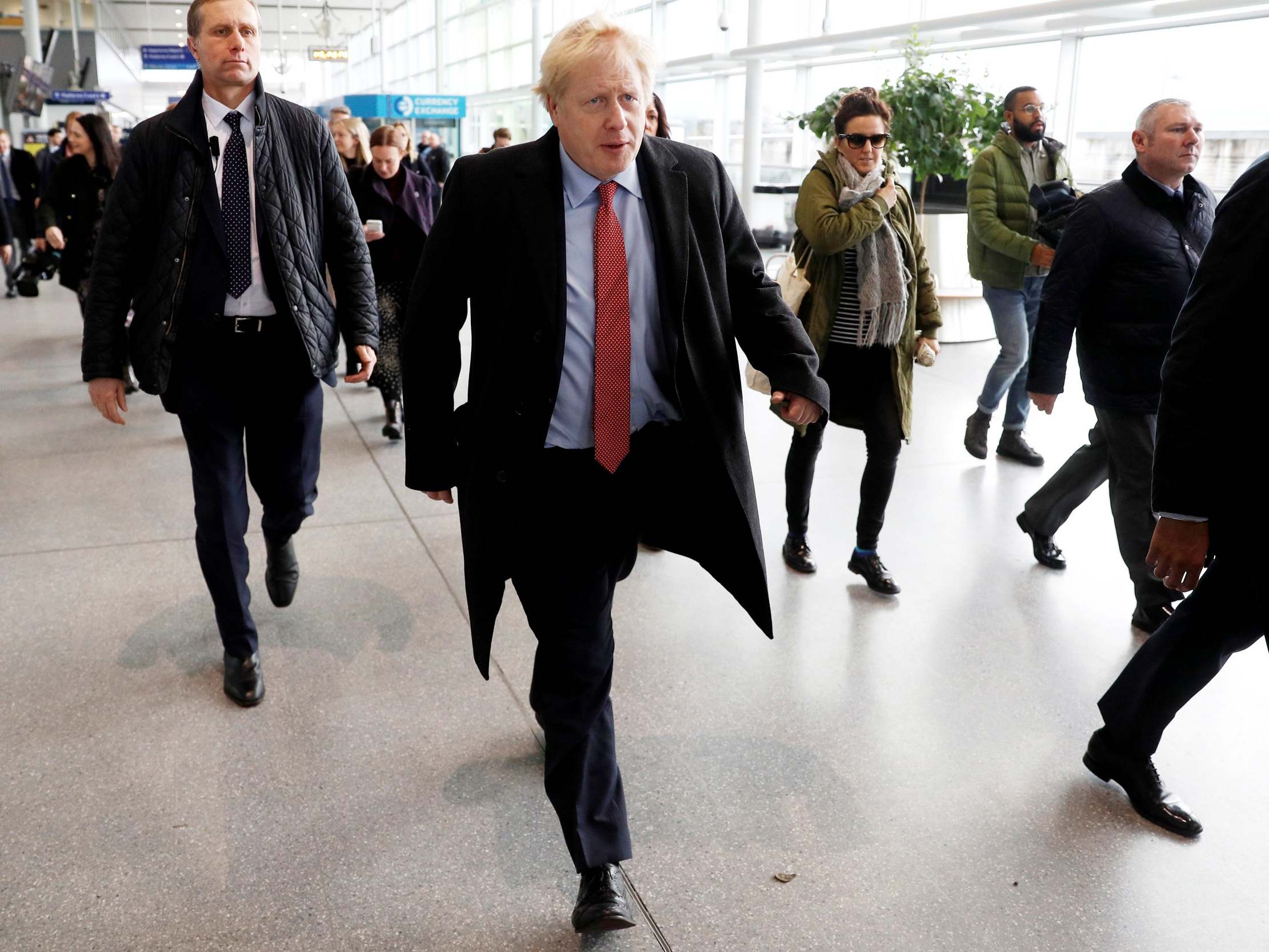General Election: Would the Andrew Neil interview be worse for Boris Johnson than dodging it?
Ducking the appearance may make the prime minister seem cowardly but perhaps that’s preferable to the alternative, writes Sean O'Grady


Andrew Neil is quite right. No broadcaster, indeed no media organisation and no journalist has the power of subpoena. If a politician, such as Boris Johnson, doesn’t wish to turn up for an interview, despite previously indicating assent, there is nothing to compel them to do so. At least, that is, formally. There are, though, some risks…
It never does your image good to be seen running away. It can be better to follow the historic precedents Neil referred to and submit yourself to an hour or half-hour of intense questioning by some well-respected broadcaster. All prime ministers, and other main party leaders, have done so for about the past half-century or so, and for a reason.
They hated the media, but they could also see the value of using it. They wanted to make themselves look good in verbal combat with some grand inquisitor, such as Robin Day, Brian Walden or one of the Dimbleby brothers. It sent a message to the electorate, again as Neil suggests – “If I can stand up to these guys then I can stand up to the foreigners and the forces arraigned against me and my government. I am a tough leader who’s not afraid of a few journalists.”
It worked well of the likes of Harold Wilson, Margaret Thatcher and Tony Blair to be seen to be quick-witted, in command of the arguments and with all the facts and figures at their fingertips. They were leaders, persuaders, teachers; and they were happy to demonstrate why.
There was the occasional lapse, true. In 1987, for example, Thatcher had to apologise to David Dimbleby and the viewers for her choice of words. The exchange went like this:
Thatcher: “Please. If people just drool and drivel that they care, I turn round and say, ‘Right. I also look to see what you actually do.’”
Dimbleby: “Why do you use the words ‘drool and drivel that they care’? Is that what you think saying that you care about people’s plight amounts to?”
Thatcher: “No, I don’t [MT pauses] I’m sorry I used those words. But I think some people talk a great deal about caring, but the policies which they pursue – and I’m sorry I used those words – the policies which they pursue do not amount to what they say.”
But note the instant recovery. Classy and, in its way, impressive. She got her landslide anyway. A leader, such as Johnson, who just funks it and runs away looks weaker than they otherwise might. The general impression of an evasive man who says anything to get out of a tight corner, and is untrustworthy – the feature of his personality Neil so embarrassingly highlighted – is getting through to the public. And yet he is still rated higher than his competitors.
In Johnson’s case, he actually doesn’t have much to fear, in the sense of simply surviving a half-hour slot. It is remarkable, as in his recent sparring with Andrew Marr and Julie Etchingham, how well he stands up to precise forensic questioning by simply ignoring it, persistently speaking over the presenter and blustering about “get Brexit done” and the unspeakable horrors of a “Corbyn-Sturgeon coalition”.
As a matter of fact, a PM or other leader simply ignoring the question and using an interview (or press conference) as an opportunity to make a short campaign speech is nothing so novel. In his memoirs, Robin Day remarked: “A few years ago in an after-dinner speech, I cracked a little joke about going to No 10 and beginning my interview thus, ‘Prime minister, what is your answer to my first question?’ Among those who laughed loudest were several members of Mrs Thatcher’s cabinet.”
But for Johnson the downside risk, even if slight, of a car crash interview a la Prince Andrew is also clear. A slide of the tongue, Freudian slip, careless reference… all could endanger what he really wants and cherishes – a landslide majority. He knows he will win, but he wants to win big. Losing a million votes or something because he says something stupid about women is really not worth it. With a 10-point lead over Labour, it looks like Johnson’s election to lose. His early election gamble is paying off. Like Roy Jenkins once said of Tony Blair as the latter approached his landslide election win in 1997, Johnson is “like a man carrying a priceless Ming vase across a highly polished floor”. And Johnson is more likely to trip over than Blair.
In truth, although the display of cowardliness is a negative for Johnson, and chimes in too easily with his shifty, unreliable image, it is a relatively minor affair. Earlier in the campaign it might have been easier for him to take the risk; but now, so close to polling day there is no overwhelming justification for facing Andrew Neil (and notwithstanding that he promised to do so to Andrew Marr only days ago).
The truth is that journalists care much more about it than the public (naturally enough) and they care much less about Johnson’s personal integrity, or lack of it, than, say, the NHS, or Brexit for that matter. The public know all about (or quite a lot about) his private life, his broken promises, the pledges that they do not expect to be fulfilled. The voters have long since made their minds up about Johnson. They don’t trust him, no, but then again, they don’t seem inclined to trust anyone. You can understand that.
Join our commenting forum
Join thought-provoking conversations, follow other Independent readers and see their replies
Comments